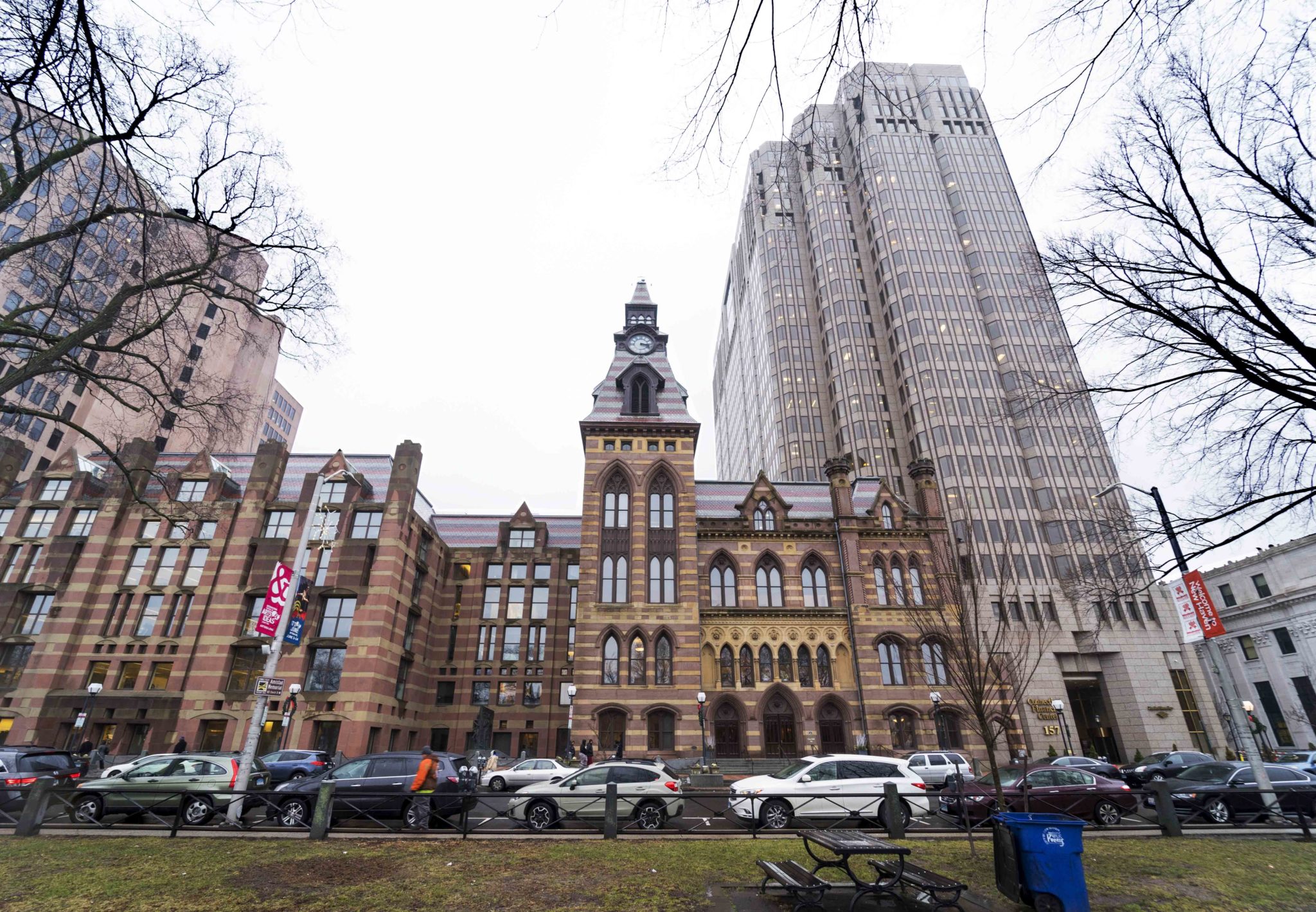
Nat Kerman
New Haven may soon face a large property tax hike, and Elm City residents are not happy.
At the second public hearing for Mayor Toni Harp’s proposed budget for the 2018–19 fiscal year, the Board of Alders Finance Committee listened to 10 residents voice concerns over the proposed 11 percent tax hike. Resident after resident said they simply could not afford the increase and could not understand why taxes are increasing even though they have not seen improvements in the city. Around 50 New Haven residents and city officials attended the session.
Harp’s 2018–19 budget proposal calls for an 11 percent tax hike as well as municipal employee concessions and a decrease in the city’s rainy-day fund. The proposal was submitted to the Board of Alders in early March and is currently under review by the Finance Committee. According to Harp’s budget proposal letter, significant state aid cuts are the main reason for the proposed property tax increase.
When Anne Stone bought a house near Audubon Street and East Rock 18 years ago, her property tax bill came to around $1,200. Now, she says, her taxes have increased almost tenfold to $12,500. In spite of the long-term tax increase, she said she has seen little improvement in her neighborhood, especially in the quality of police services and public schools.
In fact, she said, the combination of high property taxes and lack of progress in the neighborhood could cause her house to decrease in value. At the meeting, she questioned why the city would want to levy a high tax that could harm its growth and lower property values.
“It’s like killing the golden goose,” Stone said.
Other residents echoed this perceived disconnect between rising taxes and a lack of improvement in New Haven neighborhoods. Elderly residents in particular expressed the fear that having to pay more property taxes on a fixed income could cause them to lose the homes where they have lived for decades.
Some of the alders at the hearing acknowledged the difficulty that tax increases create for senior citizens.
“An 11 percent increase is a lot, especially for seniors,” Ward 6 Alder Dolores Colón told the News. She added that she hopes seniors know about the city’s tax credit deferral policy for low-income elderly and disabled people, which allows long-term New Haven residents over the age of 70 with an annual income less than $61,110 to get a tax abatement of up to $2,000 each year.
Ward 10 Alder Anna Festa said she understands that “there is concern out there” among seniors on fixed incomes, but she doesn’t know what changes the board should make until they have reviewed the budget more and spoken with all the city department heads.
But according to a report released by the independent Financial Review & Audit Commision in late March, an 11 percent tax hike may be too conservative to cover the city’s costs. The commission’s calculations say the city will have to levy a 22 percent increase in taxes in order to balance revenue deficits.
For residents, that is untenable.
“If [the property tax] goes up 22 percent, I’m leaving,” Rossi told the News.
In the hearing, Gary Doyens said the city should simply do “less with less” and run the budget like a house or business. He said the answer to spending increases “should just be no.”
The Finance Committee will continue to comb through the budget in a workshop on April 9.
“I hope we can make everyone happy without cutting services as well,” Ward 10 Alder Anna Festa told the News.
Ashna Gupta | ashna.gupta@yale.edu
Nathalie Bussemaker | nathalie.bussemaker@yale.edu







